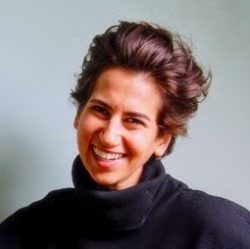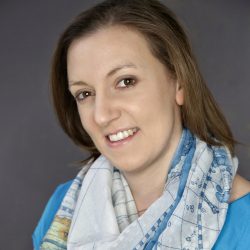In anticipation of the launch of our spiritual development group within our members’ community. In anticipation, Third Factor’s editor in chief Jessie Mannisto sat down with Alexis Obernauer, one of the facilitators, to discuss how the group conceptualizes spiritual development, how the topic relates to positive disintegration, and why (healthy) community is needed to support the process—especially for overexcitable types.
Jessie Mannisto: Third Factor readers might be skeptical of spiritual communities. After all, many churches consider our questioning tendencies as “heresy.” So to set the stage, can you explain what spirituality means to you? Is it the same as “religion?”
Alexis Obernauer: This question definitely resonates with my personal journey.
Though I was raised Jewish, my upbringing emphasized the cultural side of the religion. We debated smoked fish at Shabbat dinners, not theology. And when God was discussed in Sunday School, the songs about Noah and his kangaroosies-roosies didn’t do much in the way of faith formation. So when I aged into cynical teen territory and heard that “religion is the opiate of the masses,” it became my guiding creed.
But as it happens, basing one’s personality on angst and atheism only goes so far. Throughout my twenties, I grew dejected by the ubiquitous worship of material goods, titles, and appearances. I sensed there must be something more to life. Lacking familiarity with the transcendent, though, I fell victim to hopelessness and despair.

Fortunately, my decade o’ despondency drove me to seek that “something more.” And wouldn’t you know, I started finding it in communities focused on spiritual growth (it turns out I wasn’t the only one disenchanted with materialism). In those spaces, I learned that spirituality wasn’t airy-fairy make-believe, but simply the recognition of the connection between all things. God wasn’t a transactional disciplinarian who flooded the world to punish mankind, but rather the loving, creational energy from which all things originate.
I began to appreciate religion as an organized way of helping people make peace with that beyond our control. The corruption of religious institutions by fallible humans didn’t mean the transcendent should be discarded wholesale.
With this new perspective, I began to appreciate religion as an organized way of helping people make peace with that beyond our control. The corruption of religious institutions by fallible humans didn’t mean the transcendent should be discarded wholesale. Rather, I began to seek settings for faith exploration that felt open and honest rather than rote and hypocritical.
JM: Can you talk about how deepening your spirituality has changed you?
AO: Well, I’d say that the no-longer-living-in-complete-terror thing is the most positive outcome. Although I’m still toward the beginning of my spiritual journey (and admittedly benefit from significant societal privilege), I’m experiencing glimpses of serenity I never thought possible.
But I also want to be clear on what I consider “spiritual development.” I think of it as a multi-stage process of moving from fear to faith, of healing the wounds that prevent us from living from a place of authenticity, love, and purpose. It’s mighty hard to trust God with a dysregulated nervous system, I’ve discovered.
It’s mighty hard to trust God with a dysregulated nervous system, I’ve discovered.
As far as the initial healing stages go, I believe that everyone has some historical clean-up work to do. The traumatizing, scarcity-driven world deforms our psyches, and we develop coping strategies to navigate it. In my case, I turned to people-pleasing and compulsive reading in attempt to “know” everything. Although these defense mechanisms provided a sense of control in an uncertain world, they also made it difficult to experience the ease and belonging I so desperately craved.
Overcoming foundational insecurity involves both cognitive and somatic work to identify and dislodge stuffed hurts. In my case, I found memoir writing class, therapeutic trembling, and screaming in my car to be particularly helpful tools.
After clearing the most egregious of the bad juju, I started to glimpse my “Buddha Nature”—the perfect truth that all possess at the deepest level. Embracing my “inner light” (in the words of the Quakers) opened the door to acceptance and compassion for others. At long last, I began to let go of my incessant judgment of everything as good or bad, right or wrong.

In releasing my insistence that life unfold according to my petty demands, I enjoyed space to consider how I might fit into the larger rhythms of the universe. Cue a prolonged period of contemplating my values and purpose: What brings me meaning? What is life calling me to do?
And after several years of hand-wringing and informational interviewing, I decided to enter seminary to deepen my relationship to the divine on a full-time basis. There I’m studying spiritual direction and interfaith ministry. I hope to support others in their journeys to heal from trauma and malformative conditioning, uncover and accept their true selves, and build meaningful lives on a foundation of wholeness.
I turned to people-pleasing and compulsive reading in attempt to “know” everything. Although these defense mechanisms provided a sense of control in an uncertain world, they also made it difficult to experience the ease and belonging I so desperately craved.
JM: So how does spiritual development relate to positive disintegration?
AO: My hot take is that positive disintegration and spiritual development are the same thing.
I understand positive disintegration as the process of transforming from a human driven by self-centered impulses to survive and fit-in to an altruistic one guided by autonomously-determined values.
From my perch, the surrender of ego, development of mindful autonomy, and sense of connection and responsibility to others is also the focus of the world’s major spiritual traditions.
Not everyone walks this path of awakening, though. Those who are superstimulable, maladjusted to the existing world, and possess strong drives toward self-actualization seem the most likely to do so. With their heightened sensitivity and tendency toward questioning, these types seem incapable of taking things at face value. They’re wired toward the existential and transcendent, eternally asking “Is this all there is?!” Incidentally, these people also tend to read Third Factor Magazine.
JM: Why is community so important to this process?
AO: As a longstanding member of team “I like books more than people,” I’ve historically resisted the idea that personal growth depends on other people. I long defaulted to the position that theoretical knowledge is a sufficient driver of change—that one can achieve self-realization by reason alone.

More recently, though, I’ve conceded that humans are fundamentally relational creatures. We develop our identities through exposure to and reflection from other perspectives—iron sharpens iron, that old chestnut. And just as critically, we need others to restore us to wholeness. Our wounds are formed in relationship, and (loving, caring) relationship is the only thing that can heal them.
As a longstanding member of team “I like books more than people,” I’ve historically resisted the idea that personal growth depends on other people. [But recently] I’ve conceded that humans are fundamentally relational creatures.
It’s not just any community that will support disintegration and growth, though. Deep trust and non-judgment are required to foster the sense of belonging needed to release old hurts and maladaptive coping strategies. As my co-facilitator Ralph Rickenbach discusses in this article, most “community” is unsuitable for this task, as it’s actually pseudo-community. Members gather, but do not truly share their thoughts and feelings for fear of ostracism. In some more developed communities, members do share honestly, but for the purpose of converting others to their perspective.
True community, argues Ralph (and M. Scott Peck), requires that people empty themselves of the need to fix or be right so they can listen openly. In such settings, members can express themselves without fear of retribution. And although I’m only just beginning to experience this type of belonging, I can attest that the vulnerability, patience, uncertainty, and frustration are worth it. Healthy community seems to supercharge personal transformation.
JM: What will the Third Factor spiritual development community provide?
AO: We recognize that overexcitable questioners often struggle to find spaces to explore their spiritual sides. Many religious traditions emphasize adherence to a set doctrine; dissidents are not welcome.
In contrast, we hope to build a setting that’s structured but not rigid. Hosted as a subgroup on Third Factor’s Members’ Forum, our community will include prompts for reflection and space for sharing discoveries via both a discussion board and scheduled Zoom meet-ups. We aim to support members through the stages of positive disintegration and help them clarify their values, gifts, and callings.
Many religious traditions emphasize adherence to a set doctrine; dissidents are not welcome. In contrast, we hope to build a setting that’s structured but not rigid.
We welcome people from across the spiritual development spectrum—those new to the path and those further along who want to share their wisdom. We also hope to support those who are deconstructing a previous, ill-fitting faith and looking for something more authentically resonant.
At a high level, if you desire more meaning in your life and want to compare notes with other seekers, do join us!
JM: What should people do if they want to join this subgroup in our community?
AO: The first step is to subscribe to Third Factor at the Community Member Tier. Upon entering the forum, indicate your interest in joining the spiritual development community by messaging Ralph Rickenbach.
We’ll then send you a brief Google form to learn more about your background, goals, and needs. We believe this light screening is important to ensuring members are dedicated and committed to engaging in good faith. And although we understand that people might want to initially observe the discussion, we do expect somewhat active participation—at least one personal submission and one response to someone else per week, if possible. (If it’s not, talk to us.)
I caveat all of this with a key guideline of spiritual life, which is the embrace of whatever emerges. Ralph and I are mere facilitators, hoping to provide a co-creative space. We aren’t familiar with many (healthy) settings that support spiritual exploration for overexcitable humans, so we’re launching this experiment to see what works and what doesn’t. Fingers crossed that it can become a model for subsequent communities, but at the very least, we know the discussion will be stimulating.





